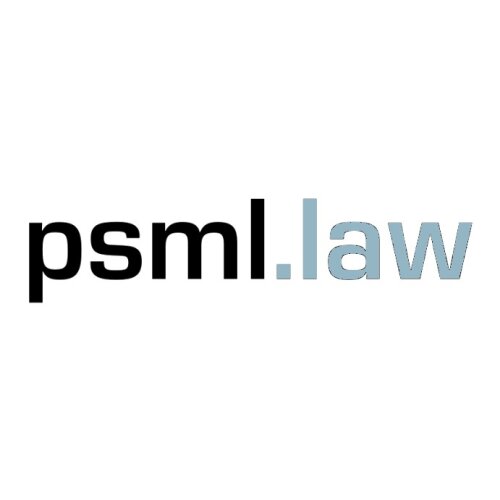Best Conveyancing Lawyers in Cyprus
Share your needs with us, get contacted by law firms.
Free. Takes 2 min.
Free Guide to Hiring a Real Estate Lawyer
Or refine your search by selecting a city:
List of the best lawyers in Cyprus
About Conveyancing Law in Cyprus
Conveyancing in Cyprus refers to the legal processes and procedures involved in transferring the ownership of real estate from one party to another. The process includes verifying property ownership, examining title deeds, managing contracts, ensuring compliance with local laws, and registering new ownership with the relevant authorities. Cyprus has its own set of property and land laws, influenced by both British legal traditions and specific local practices. Whether you are buying, selling, or inheriting property, conveyancing law ensures that the transfer is executed legally and securely.
Why You May Need a Lawyer
While some aspects of conveyancing can be managed independently, many people require legal assistance to prevent costly mistakes and ensure compliance with local law. Common situations where individuals seek a conveyancing lawyer in Cyprus include:
- Purchasing or selling a home, apartment, or commercial property
- Transferring ownership of inherited property
- Dealing with disputes over property boundaries or rights of way
- Securing a mortgage or arranging finance for a property purchase
- Ensuring that the property is free from encumbrances, debts, or legal disputes
- Registering a property with the Land Registry Office
- Complying with local and national tax requirements related to property
- Assisting foreign buyers in understanding Cyprus-specific processes and documentation
Local Laws Overview
Conveyancing in Cyprus is governed primarily by the Lands and Surveys Department and subject to the Immovable Property (Tenure, Registration, and Valuation) Law. Key legal aspects include:
- All property must be registered in the Cyprus Land Registry, and legal title deeds must be present for ownership transfer
- The sale must be formalized through a written contract, signed by both parties and lodged at the Land Registry
- Checks must be conducted to confirm legal ownership and the absence of mortgages, debts, or outstanding taxes
- Foreign buyers must satisfy certain requirements under the Aliens Law and may need Council of Ministers approval for some purchases
- Transfer fees, stamp duties, capital gains tax, and VAT may apply and vary depending on circumstances
- Inheritance, donations, and partition of property between heirs have specific conveyancing laws and tax implications
Proper legal representation ensures all procedures comply with the local framework and protects the parties involved from unexpected liabilities or disputes.
Frequently Asked Questions
What documents are required for buying property in Cyprus?
You will typically need a valid passport or identification document, proof of funds, a signed contract of sale, and any pre-approval documentation if you are using a mortgage. The seller must provide the title deed, planning permissions, and certificates regarding property taxes and utilities.
Can foreigners own property in Cyprus?
Yes, foreigners may buy and own property in Cyprus. However, there are some restrictions on buying multiple properties or large plots of land and you may need government approval for certain purchases.
What are title deeds and why are they important?
Title deeds prove legal ownership of a property. Having clear and updated title deeds is crucial because they guarantee you are buying a debt-free property without encumbrances or disputes.
Do I need a lawyer to buy or sell property in Cyprus?
While it is possible to conduct a transaction without a lawyer, it is highly recommended to use a qualified conveyancing lawyer to handle contract drafting, due diligence, and registration. This reduces the risk of legal or financial issues.
What is the role of the Land Registry Office?
The Land Registry Office records all property transactions, title deeds, mortgages, and other legal documents related to land and real estate in Cyprus. Registration is necessary for legal ownership and protection of your rights.
How long does the conveyancing process usually take?
The process can range from several weeks to a few months, depending on property checks, mortgage arrangements, and clearance of legal or administrative hurdles.
What taxes and fees are associated with buying property?
You may be required to pay stamp duty, transfer fees, VAT (for new properties), capital gains tax on profits, and legal and administrative costs. These can vary depending on the value and nature of the property.
What is the difference between freehold and leasehold property?
Freehold property means you own the property and land outright. Leasehold property gives you the right to use the property for a specified period under a lease agreement, after which ownership reverts to the freeholder.
What happens if there is a dispute over property boundaries?
Disputes over property boundaries are typically resolved through negotiation, mediation, or legal proceedings. Your lawyer can request surveys and official documents from the Land Registry to help resolve the issue.
Can I buy property in Cyprus remotely or from abroad?
Yes, you can purchase property in Cyprus remotely by granting power of attorney to a representative or lawyer who can act on your behalf for most legal steps of the conveyancing process.
Additional Resources
For further information and support in the conveyancing process, you can consult the following resources:
- Cyprus Bar Association - For finding licensed lawyers specializing in conveyancing
- Department of Lands and Surveys - The official governmental authority for all property registration matters
- The Ministry of Interior - For guidance on foreign property ownership and residence matters
- Local embassies and consulates - Especially useful for foreigners needing country-specific guidance
- Municipal offices - For planning permissions, local taxes, and zoning information
Next Steps
If you need assistance with conveyancing in Cyprus, the recommended steps are:
- Identify your specific needs - buying, selling, inheritance, dispute resolution, or another property-related matter
- Gather all relevant property documents and personal identification paperwork
- Contact a qualified conveyancing lawyer or law firm with experience in Cypriot property law
- Discuss your situation and ask for a clear outline of services, timelines, and costs
- Maintain clear communication with your legal advisor during all steps of the process
- Ensure all contracts and agreements are reviewed before signing
- Request receipts and official confirmation when payments are made or documents are lodged
Proper legal advice and representation will help you avoid mistakes, protect your investment, and guarantee that your property transaction complies with Cyprus law.
Lawzana helps you find the best lawyers and law firms in Cyprus through a curated and pre-screened list of qualified legal professionals. Our platform offers rankings and detailed profiles of attorneys and law firms, allowing you to compare based on practice areas, including Conveyancing, experience, and client feedback.
Each profile includes a description of the firm's areas of practice, client reviews, team members and partners, year of establishment, spoken languages, office locations, contact information, social media presence, and any published articles or resources. Most firms on our platform speak English and are experienced in both local and international legal matters.
Get a quote from top-rated law firms in Cyprus — quickly, securely, and without unnecessary hassle.
Disclaimer:
The information provided on this page is for general informational purposes only and does not constitute legal advice. While we strive to ensure the accuracy and relevance of the content, legal information may change over time, and interpretations of the law can vary. You should always consult with a qualified legal professional for advice specific to your situation.
We disclaim all liability for actions taken or not taken based on the content of this page. If you believe any information is incorrect or outdated, please contact us, and we will review and update it where appropriate.
Browse conveyancing law firms by city in Cyprus
Refine your search by selecting a city.

















